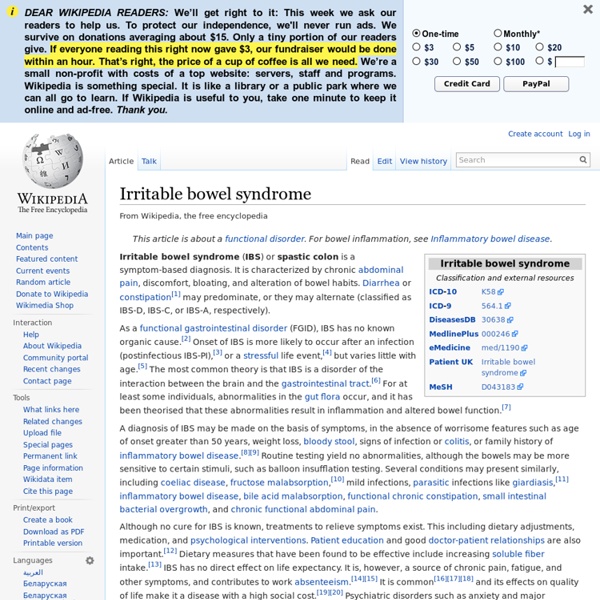Orthostatic hypotension
Orthostatic hypotension, also known as postural hypotension,[1] orthostasis, and colloquially as head rush or dizzy spell, is a form of hypotension in which a person's blood pressure suddenly falls when standing up or stretching. In medical terms, it is defined as a fall in systolic blood pressure of at least 20 mm Hg or diastolic blood pressure of at least 10 mm Hg when a person assumes a standing position. The symptom is caused by blood pooling in the lower extremities upon a change in body position. It is quite common and can occur briefly in anyone, although it is prevalent in particular among the elderly, and those with low blood pressure. Signs and symptoms[edit] When orthostatic hypotension is present, the following symptoms can occur after sudden standing or stretching (after standing): They are consequences of insufficient blood pressure and cerebral perfusion (blood supply). Causes[edit] Hypovolemia[edit] Diseases[edit] Medication[edit] B12 Deficiency[edit] Harnesses[edit] Notes
Heart murmur
Murmurs are pathologic heart sounds that are produced as a result of turbulent blood flow across the heart valve that is sufficient to produce audible noise. Most murmurs can only be heard with the assistance of a stethoscope ("or auscultation"). A functional murmur or "physiologic murmur" is a heart murmur that is primarily due to physiologic conditions outside the heart, as opposed to structural defects in the heart itself. Functional murmurs are benign (an "innocent murmur").[1] Murmurs may also be the result of various problems, such as narrowing or leaking of valves, or the presence of abnormal passages through which blood flows in or near the heart. Heart murmurs are most frequently categorized by timing, into systolic heart murmurs and diastolic heart murmurs. Classification[edit] Murmurs can be classified by seven different characteristics: timing, shape, location, radiation, intensity, pitch and quality.[3] Radiation refers to where the sound of the murmur radiates. Systolic
Palpitation
Palpitation is an abnormality of heartbeat that ranges from often unnoticed skipped beats or accelerated heart rate to very noticeable changes accompanied by dizziness or difficulty breathing. Palpitations are common and occur in most individuals with healthy hearts. Palpitations without underlying heart disease are generally considered benign. However, heart palpitations can be a symptom of a serious illness such as coronary heart disease, asthma, or emphysema. Palpitations may be associated with heart problems, but also with kidney disease, electrolyte imbalances for magnesium, potassium and calcium, thyroid malfunction, asthma, and deficiencies or lowered stores of certain nutrients which may include, but are not limited to, taurine, arginine, iron (anemias), potassium and magnesium. Attacks can last for a few seconds or hours, and may occur very infrequently, or more than daily. Causes[edit] Palpitations can be attributed to one of four main causes: Anxiety and stress[edit]
Dysautonomia
Dysautonomia (or autonomic dysfunction) is any disease or malfunction of the autonomic nervous system (ANS). The autonomic nervous system controls a number of functions in the body, such as heart rate, blood pressure, digestive tract peristalsis, and sweating, amongst others. Dysfunction of the ANS can involve any of these functions. A number of conditions are forms of dysautonomia: postural orthostatic tachycardia syndrome (POTS), inappropriate sinus tachycardia (IST), vasovagal syncope, pure autonomic failure, neurocardiogenic syncope (NCS), neurally mediated hypotension (NMH), orthostatic hypotension, orthostatic hypertension, autonomic instability, paroxysmal sympathetic hyperactivity, and a number of lesser-known disorders such as cerebral salt-wasting syndrome. Signs and symptoms[edit] The symptoms of dysautonomia are numerous and vary widely from person to person. The primary symptoms present in patients with dysautonomia are: Causes[edit] Management[edit] Prognosis[edit]
Mast cell
The mast cell is very similar in both appearance and function to the basophil, a type of white blood cell. However, they are not the same, as they arise from different cell lines.[3] Origin and classification[edit] Illustration depicting mast cell activation and anaphylaxis Mast cell Mast cells were first described by Paul Ehrlich in his 1878 doctoral thesis on the basis of their unique staining characteristics and large granules. Mast cells are very similar to basophil granulocytes (a class of white blood cells) in blood. Two types of mast cells are recognized, those from connective tissue and a distinct set of mucosal mast cells. Mast cells are present in most tissues characteristically surrounding blood vessels and nerves, and are especially prominent near the boundaries between the outside world and the internal milieu, such as the skin, mucosa of the lungs, and digestive tract, as well as the mouth, conjunctiva, and nose.[2] Physiology[edit] Structure of histamine Biochemistry[edit]
POTS - What Helps
POTS What Helps? The contents of this Web page are provided for informational purposes only and should not be used as a substitute for professional medical advice, diagnosis or treatment. Please keep in mind that new treatments are continually emerging and some of the older treatments may rarely be used. Your physician may prescribe medication to decrease the symptoms of POTS. Doctors admit that treatment can be a challenge and that no single therapy is uniformly successful. Anti-arrhythmic drugs, such as disopyramide (norpace), have been used to treat POTS patients. Benzodiazepines, such as Clonazepam (klonopin) or alprazolam (xanax), are not used as a first-line of treatment and can worsen tachycardia and hypotension. Beta Blockers are especially useful in those with elevated norepinephrine levels, beta-receptor supersensitivity and a hyperadrenergic state. Cerefolin is a vitamin supplement that may help patients combat fatigue and feel more alert.



